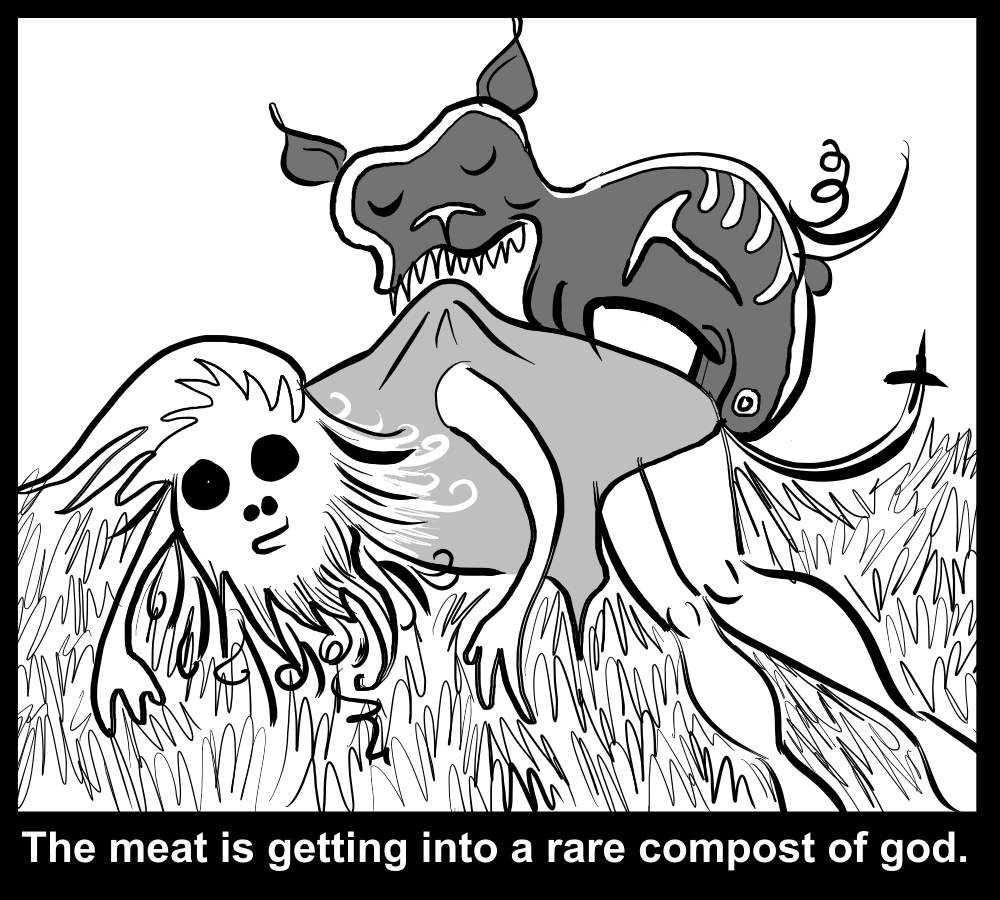Writers Respond: An Interview with Evan Lavender-Smith
 Evan Lavender-Smith is a smart guy. Evan Lavender-Smith is, like, way too smart for me. I haven’t read Heidegger. Haven’t read Markson. Missed most of the allusions, probably. And still had fun reading From Old Notebooks. Probably everyone should read it. Everyone is reading it. All the cool people have already read it. And soon they’ll be reading Avatar, which is due out in 2011. People will be like: Q: Who’s this Evan Lavender-Smith dude wrote these asskickers? Everyone else will be all: A: Editor-in-chief of Noemi Press. Prose and drama editor of Puerto del Sol. And visiting assistant professor of English at New Mexico State University. Has awesome words in Fence, Glimmer Train, Colorado Review, Denver Quarterly, etc. And a website. www.el-s.net. You should visit it and read this interview, which was conducted using Google Docs from September 28, 2010 – October 19, 2010.
Evan Lavender-Smith is a smart guy. Evan Lavender-Smith is, like, way too smart for me. I haven’t read Heidegger. Haven’t read Markson. Missed most of the allusions, probably. And still had fun reading From Old Notebooks. Probably everyone should read it. Everyone is reading it. All the cool people have already read it. And soon they’ll be reading Avatar, which is due out in 2011. People will be like: Q: Who’s this Evan Lavender-Smith dude wrote these asskickers? Everyone else will be all: A: Editor-in-chief of Noemi Press. Prose and drama editor of Puerto del Sol. And visiting assistant professor of English at New Mexico State University. Has awesome words in Fence, Glimmer Train, Colorado Review, Denver Quarterly, etc. And a website. www.el-s.net. You should visit it and read this interview, which was conducted using Google Docs from September 28, 2010 – October 19, 2010.
1.
From Old Notebooks: How do we read it?
MOLLY GAUDRY: I’m interested in how the opening notes in From Old Notebooks (F.O.N.) help instruct the reader as to how to read this book and also sort of explain, without explanation, what this book is. READ MORE >
December 3rd, 2010 / 6:32 pm
The Book of Frank by CAConrad
 Frank. Yes, he’s that, ribald but also delicate—a reactionary event if only for being born. He’s the subject of CAConrad’s The Book of Frank, first published by Chax Press and freshly picked up by Wave Books, who have padded it with additional poems and a glowing Afterword by Eileen Myles. Despite steady output from Conrad, the book’s creation took over a decade.
Frank. Yes, he’s that, ribald but also delicate—a reactionary event if only for being born. He’s the subject of CAConrad’s The Book of Frank, first published by Chax Press and freshly picked up by Wave Books, who have padded it with additional poems and a glowing Afterword by Eileen Myles. Despite steady output from Conrad, the book’s creation took over a decade.
These are not persona poems, but I’m still curious about the distance between the repressed, ever-morphing Frank, and the poet, so easy in his skin, disarming. I saw CAContrad reading at St. Mark’s Poetry Project this fall: there’s the characteristic nail polish, glittery and red; a wooden Chinese fan sways from his fingers. As he begins, a gladiola leaning against the podium begins to fall. But Conrad catches it. “This is a very unruly gladiola,” he adds, moving on to the next poem with the bloomy staff clasped in hand.
December 3rd, 2010 / 3:30 pm
In case the first tattoo book wasn’t enough for you, here’s your second chance.
 THE WORDS TO EVERY SONG: Band Tattoos from Music Lovers Worldwide, edited by Eva Talmadge
THE WORDS TO EVERY SONG: Band Tattoos from Music Lovers Worldwide, edited by Eva Talmadge
IT’S ANOTHER CALL FOR SUBMISSIONS! As with THE WORD MADE FLESH, edited by Justin Taylor and yours truly and launched from this very blog last summer, here’s another announcement for a tattoo book. This time around we (the royal we; I’m doing this as a solo project while Justin devotes his time to writing) want to see your band tattoos. Song lyrics, band logos, record labels, musician portraits, you name it. If you’ve ever loved a song or a musician or a band so much you went to the tattoo shop and made your devotion permanent, we want to see it.
some things that i ate this week and a review of how they tasted

slapshot (starring Paul Newman): I was the coolest guy that ever lived and you were a hair stylist and the goalie in our love was from a foreign country and would yell at us and then the factory closed down which made everyone in town sad because people would soon be really poor and they would have to kill themselves, but it was okay because I was still really cool and this guy from Princeton was good at hockey even though he had dad issues and then the owner gave birth to three retards that liked to punch things so the team started winning again and I slept with the wife of the other team’s goalie and then someone said ‘Faggot’ and another guy said, “This one time I was in Florida and the snatch was crawling out my boobs.” And the guy from Princeton became in touch with his feminine body which made you raise your eyebrows and I raised my eyebrows and then we looked at each other long and hard and you said, “New York City,” and I said, “Minnesota,” and our love was still a goalie from a foreign country but it had grown into a shape that smelled like three retards born out the ass of a nation of absurdity that sometimes laughs when people say, “Faggot.”
the external combustion engine by Michael Ives: Some kids were in the park doing bad things. I yelled at them. You told me not to yell at them. There was something interesting in our shared thoughts, but the afternoon didn’t quite go as planned. I think you went into the movie business and I went into education. Someone either you knew or I knew got me a job at a school where someone I knew once went, but I think it was only temporary. The world is going to end. This makes me upset because I can’t do anything but watch it end and I wish that instead of doing this I was looking at you as you watched the whole thing end.
the box man by Kobo Abe: I was homeless or maybe you were homeless and at some point we decided to be naked and homeless together in a box, but another person wanted the box so you gave me some money and I gave the box to him, but he wasn’t who he said he was because someone had paid him to be them and they just wanted to smoke morphine all day so they kept paying him to be them so they didn’t have anything to do but smoke morphine and he was tired of being them so he decided he was going to be me which is why he made you pay me to be me and then I was no longer homeless and didn’t have to live in the small box but instead I lived in a really large box with you until you got tired of me and moved out of my large box.
babyfucker by Urs Allemann: A man was in a room that was the worst place to ever be and that man was me and maybe the room was me too but I was afraid to look at where I was even though you might have been in the room. I was very much in love with you or maybe you were on the balcony, but I just couldn’t bring myself to open my eyes because I was afraid I was doing the worst thing that a person could ever do and you would not be able to help me because I was touching the things that were bad to touch in the way I was touching them.
A Student Cried in My Poetry Workshop

Every Wednesday at 11 a.m. I have a two hour and forty-five minute poetry workshop with thirteen other students. We spend the first hour of every class discussing a book assigned to us weekly by the professor. Then we workshop seven poems, each student turning in a piece to be discussed every other class. Pretty simple.
This week something happened. We were workshopping a student’s poem. It was about something (I’ll just omit everything explicit about everyone and anything in this class) and followed a similar pattern to some other poems this particular student had turned in for critiquing. People started talking about the poem in the customary manner, which is pretty much everyone suggesting different cuts, extensions, and changes that need to be made.
Then something happened. I’ll preface this by saying that, without great exception, pretty much every student turns in the same poem every week. Subject matter and stuff alter a little bit, but approach and word choice and style all seem pretty constant.
“Orange Juice,” Personality, and Literature
In the third-to-last paragraph of Timothy Willis Sanders’ new book, Orange Juice and Other Stories, from Awesome Machine Press, the protagonist sees six babies lying in a fountain. Four are lying in the fountain, and two are pissing into it. “This means something,” he says. “I just don’t care what.”
 I could try to interpret what the author may have meant by placing that scene, that paragraph, those words in his book, particularly at the end of his book, but I want to point at it, nothing more.
I could try to interpret what the author may have meant by placing that scene, that paragraph, those words in his book, particularly at the end of his book, but I want to point at it, nothing more.
Orange Juice is 52 pages long and includes nine stories. The stories are very short, the style is minimalist, the language straightforward. Sanders may have been influenced by Zachary German’s Eat When You Feel Sad, as evidenced by the use of minimalist declarative sentences mostly involving actions, the consistent specifying of brand names, and the presence of characters who have names but whose external appearance and internal thoughts are mostly withheld. The characters appear through actions and words.
But this book seems to have a very different personality than German’s book. More on personality later.
It is a very subtle book. “Orange Juice,” the first and titular story, manages to suggest, in two short pages, a tense, complicated, but largely unspoken conflict between a man, Bill, his girlfriend(?), Jeanie, and Jeanie’s son, Chris. And the sentences are like this: “Bill makes a list. He highlights and underlines ‘pulp-free Minute Maid.’ Chris walks through the kitchen and Jeanie catches him by the elbow. Chris jerks free.”
November 19th, 2010 / 1:13 pm
Time Traveling with Josh Russell: An Interview
The risk, lyricism, and page-turning plot of Josh Russell’s Yellow Jack appear again with maturity and elegance in his second novel of historical fiction, My Bright Midnight. How? Why? With what nerve? Josh Russell, recipient of a National Endowment for the Arts Literature Fellowship and Co-Director of Georgia State University’s Creative Writing Program, reveals a secret or two.
 Q: Aimee Bender wrote, “Everything a human experiences happens on the body. That’s enough setting for me.” Your protagonist Walter is very self-consciously embodied after leaving Germany and experiencing life in 1930’s and 40’s New Orleans, which you imbue with its own highly sensual body. Would you discuss the way the settings (or bodies) worked together in your process of writing the novel?
Q: Aimee Bender wrote, “Everything a human experiences happens on the body. That’s enough setting for me.” Your protagonist Walter is very self-consciously embodied after leaving Germany and experiencing life in 1930’s and 40’s New Orleans, which you imbue with its own highly sensual body. Would you discuss the way the settings (or bodies) worked together in your process of writing the novel?
A: A few days ago I was commiserating with a friend about commuting and how we both missed being able to walk to work, and I was amused and amazed to realize how related writing and walking are for me. I wrote Yellow Jack while walking during two years of lunch hours when I was working as a help desk dispatcher: Walk a few yards along the path beside Boulder Creek, stop, write a sentence in my notebook. Walk a few more yards, stop, write two sentences. I would have had a lot less to write about had I not spent so much time walking to and from work when I lived in New Orleans a few years before I began even thinking about Yellow Jack. My Bright Midnight comes in large part from my second, longer, residence in New Orleans, during which I regularly walked the twenty-odd blocks of Magazine Street between my house and Tulane University, where I was working, stopping to buy pain raisin at the neighborhood boulangerie, cafe au lait at the coffee shop, and blood oranges at Whole Foods (it’s amazing to recall that this did not seem in the least pretentious). Obviously the New Orleans landscape is an important part of both books. As for how settings and bodies worked in my process of writing My Bright Midnight, when I choose to write something with an historical setting, I do so in part because of the challenges of avoiding clichés about the past, and one strategy I employ to answer those challenges is to make sure that the characters’ interiors and exteriors are never lazily constructed.
November 2nd, 2010 / 11:43 am
{LMC}: A Brief Reflection on Czar Gutierrez’s Bombardier
You can read a PDF of Bombardier to better participate in the discussion. Go buy NY Tyrant. If you would like to have the full PDF of NY Tyrant 8 so you can participate in this month’s LMC discussions, get in touch with me. But still, when you buy a literary magazine, an angel gets its wings.
The New York Tyrant veers closer to a glossy magazine than most literary journals. The stories are punchy, slim, trim and — with an exception or two — quite small. This is a quibble when you like what you are reading and a relief when you do not. Czar Gutierrez did not just leave me wanting, I was left reeling, holding his strange text up to the stuff I usually like — the Cheever, the Amis, the Ellroy — baffled, going through it line by line, trying to understand why I liked it, and how the hell he managed to jerk me around so much I dug pressure prints into each page.
I am quite suspicious of translations. The ones that wash ashore in the U.S. are tend too often to be finger wagging nuggets of exoticism. The last I remember actually enjoying was Michel Houellebecq. And I should have hated this excerpt of Bombardier — it begins with a trickle of semen dribbling down some poor girl’s thigh, then the camera yanks around to see two planes cross in the sky; then he pulls away further, into pure telemetry and physics… I won’t spoil the rest. Gutierrez’s control is so splendid, his craft so clean and precise, you can ignore the fact that the man is a D.J., a poet, that his website shrieks techno at you as soon as you open it, and the implied quarrel with American military power and 21st Century capitalism (which, honestly, as a Colombian he has a right to quarrel with — we Americans do meddle a bit down there).
All successful magazine brands sell not just stories, but a platonic ideal of taste; a lifestyle, an aesthetic or the appearance of being informed. Literary journals are no different. Each time I pick one up I expect a throbbing, sizzling smorgasbord of discoveries — and for once, in the New York Tyrant, I think I found what I was looking for.
Seven Obituaries: Brevity, HTMLGIANT, Birds (in poetry), and more!
 Mr. Shameless S. Promo (???? – ????) was found slumped over his Apple iPad, dead from a Twitter overdose on Tuesday morning. Friends of the deceased have confirmed his last few days were spent “tweeting his little ass feathers off like Tweetie on a coke binge” over having landed an interview with a D-list, female lit blog personality. In happier times, Mr. Promo could often be found regaling comment threads all over the online indie lit scene with off-topic anecdotes about his forthcoming book, like the time he tried to get a blurb from Dennis Cooper (“and he goes, send me the naked JPGs and we’ll talk, ha ha!”) or how the publishers that dropped him were such useless incompetents (“Man, I’m flogging this goddamn book all by myself. But I mean, if I don’t do it, who will, right?!”) A well-known online lit journal editor familiar with the deceased was quoted as saying, “finally the hail of submissions ranging from the inadequate to the outright offensive that has been raining down on us like napalm since this tool discovered Submishmash will cease.” Mr. Promo is survived by his official author website, complete with a “personal blog” which is in actuality a list of live reading dates along with hundreds of links to his writing in various low-ranking publications, including articles that pretend a service to the community but are in fact mere justifications for his annoying and ineffective marketing practices, as well as his Vimeo book trailer, quirky interviews in several group lit blogs, and a Facebook fan page with approximately 35 fans (mostly spammers). In lieu of flowers the family have requested pledges to their Kickstarter project to help them publish Mr. Promo’s oeuvre, including selected Gmail chats and tweets. A writer and close family friend said, “okay so with the family doing it, it will be a little like self-publishing, but waaay better because he’s dead, so it’s like, posthumous and stuff.” –Ani Smith
Mr. Shameless S. Promo (???? – ????) was found slumped over his Apple iPad, dead from a Twitter overdose on Tuesday morning. Friends of the deceased have confirmed his last few days were spent “tweeting his little ass feathers off like Tweetie on a coke binge” over having landed an interview with a D-list, female lit blog personality. In happier times, Mr. Promo could often be found regaling comment threads all over the online indie lit scene with off-topic anecdotes about his forthcoming book, like the time he tried to get a blurb from Dennis Cooper (“and he goes, send me the naked JPGs and we’ll talk, ha ha!”) or how the publishers that dropped him were such useless incompetents (“Man, I’m flogging this goddamn book all by myself. But I mean, if I don’t do it, who will, right?!”) A well-known online lit journal editor familiar with the deceased was quoted as saying, “finally the hail of submissions ranging from the inadequate to the outright offensive that has been raining down on us like napalm since this tool discovered Submishmash will cease.” Mr. Promo is survived by his official author website, complete with a “personal blog” which is in actuality a list of live reading dates along with hundreds of links to his writing in various low-ranking publications, including articles that pretend a service to the community but are in fact mere justifications for his annoying and ineffective marketing practices, as well as his Vimeo book trailer, quirky interviews in several group lit blogs, and a Facebook fan page with approximately 35 fans (mostly spammers). In lieu of flowers the family have requested pledges to their Kickstarter project to help them publish Mr. Promo’s oeuvre, including selected Gmail chats and tweets. A writer and close family friend said, “okay so with the family doing it, it will be a little like self-publishing, but waaay better because he’s dead, so it’s like, posthumous and stuff.” –Ani Smith
+
{LMC}: An Illustration of one line from Sean Kilpatrick’s “The All Encompassed Drowned”
Ed: You can read a PDF of this story, here, so you can better participate. Buy NY Tyrant. If you would like to have the full PDF of NY Tyrant 8 so you can participate in this month’s LMC discussions, get in touch with me. But still, when you buy a literary magazine, an angel gets its wings.

